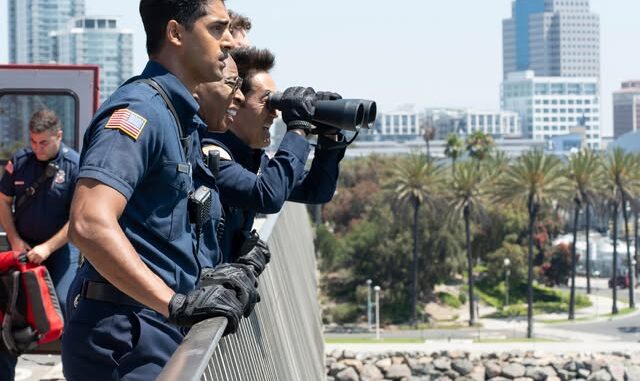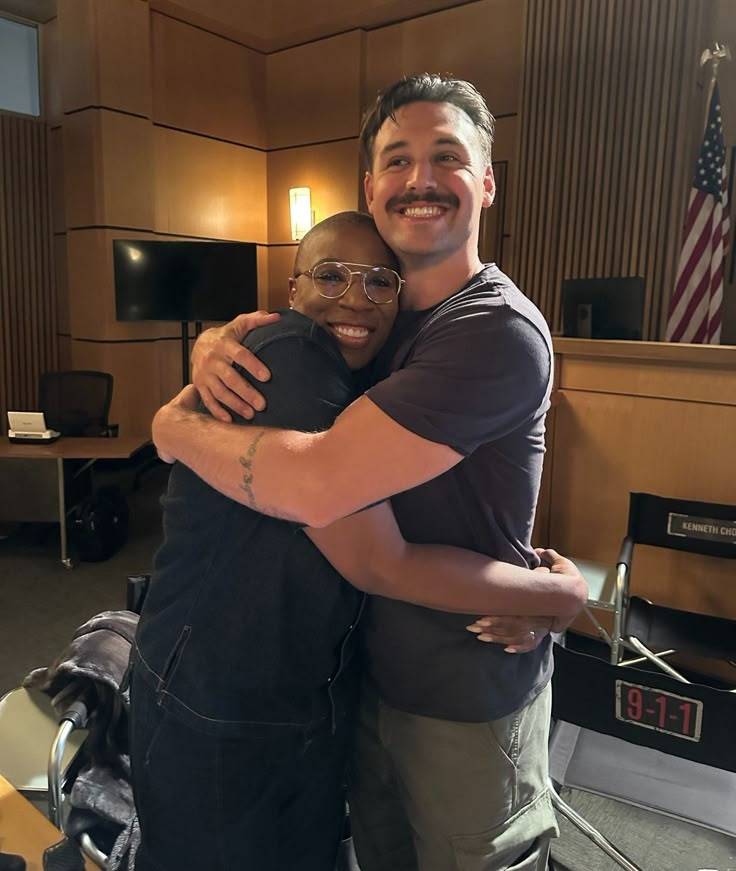
Few television moments can truly make you stop, cry, and feel the full weight of a family’s grief. But when Harry told Athena, “You stopped being our mother after Bobby died,” the entire 9-1-1 fandom collectively broke. This scene wasn’t just another dramatic moment—it was raw, painful, and deeply human.
In this article, we’ll dive deep into the emotional power of that moment, explore the layers of grief behind those words, and understand why it resonated so profoundly with fans around the world.
The Power of Emotion in Television Storytelling
Television has a unique ability to mirror our deepest emotions. When a show like 9-1-1 tackles love, loss, and family struggles, it does more than entertain—it connects.
The scene between Harry and Athena wasn’t just acting. It was truth in motion. It showed how grief can fracture relationships, even between a mother and her child.
A Look Back: Bobby’s Tragic Death
Before we unpack Harry’s heartbreaking statement, let’s revisit the tragedy that sparked it all—Bobby Nash’s death.
Bobby wasn’t just Athena’s husband; he was the heart of their blended family. His compassion, stability, and heroism defined who he was. Losing him was like losing their emotional anchor.
Athena, always strong and composed, tried to keep going. But grief doesn’t always show up as tears—it often hides behind silence, distance, and exhaustion.
Athena’s Silent Struggle
After Bobby’s death, Athena buried herself in work. It’s what she’s always done—keep moving, keep saving others. But that strength became a wall.
Her son Harry, who’d already seen his share of trauma, needed her more than ever. Yet, to him, she was gone. Emotionally distant. Unreachable.
That’s what made Harry’s line so piercing—it was the moment he voiced the pain she refused to face.
The Line That Broke Every Heart
“You stopped being our mother after Bobby died.”
Simple words. Devastating truth.
This line wasn’t shouted in anger; it was whispered in heartbreak. It was the emotional explosion of a son who’d lost not one parent, but two—the one who died and the one who disappeared into grief.
And Athena? You could see it in her eyes—the realization that she had, in some way, failed her children in the wake of her own loss.
Grief’s Unspoken Language
Grief doesn’t just come in tears—it comes in silence, in avoidance, in emotional withdrawal.
Athena’s grief was internalized. She tried to be strong, but in doing so, she shut everyone out. Harry’s words ripped open that emotional wound and forced her to face what she’d been running from.
It’s a painful truth many people recognize: sometimes, grief changes us so much that even our loved ones can’t find us anymore.
Why Fans Were So Deeply Moved
The moment spread like wildfire online—clips shared, tears shed, discussions sparked. Why? Because it felt real.
Everyone has experienced a version of that pain—watching someone they love disappear into sorrow, or feeling forgotten by someone drowning in their own grief.
9-1-1 captured that emotional authenticity in a way few shows can.
The Acting That Made It Real
Angela Bassett (Athena) and Marcanthonee Jon Reis (Harry) delivered performances that were nothing short of breathtaking.
Bassett’s subtle expressions—the way her eyes filled with guilt, the tremor in her voice—showed a mother crushed by realization. Reis’s raw emotion was just as powerful; it wasn’t just anger, it was heartbreak.
This scene will be remembered as one of 9-1-1’s most emotionally charged moments.
A Deeper Message About Family and Healing
Beneath the tears lies an important message: grief can separate families, but it can also bring them back together—if they face it honestly.
Harry’s confrontation wasn’t just about blaming Athena. It was about wanting his mother back. That cry for connection might be the very thing that helps them both heal.
How Athena’s Journey Mirrors Real-Life Loss
Athena’s struggle represents millions of parents who, after loss, try to stay strong but end up emotionally shutting down.
It’s a mirror to reality: people often think strength means not breaking down. But true strength sometimes means admitting you’re broken—and letting your loved ones see it.
The Importance of Vulnerability in Healing
In a world that praises resilience, vulnerability often gets dismissed. But moments like this remind us that being open about our pain is what leads to healing.
Athena needed that confrontation to break the armor she’d built. And in doing so, she took the first step toward reconnecting with her children.
Fans’ Emotional Reactions: A Wave of Empathy
Social media erupted with comments like:
-
“I sobbed. That line cut too deep.”
-
“Harry said what we were all thinking.”
-
“Athena’s pain was my pain.”
When art mirrors emotion, it becomes more than entertainment—it becomes therapy.
The Scene’s Place in 9-1-1 History
Over the years, 9-1-1 has delivered countless unforgettable moments. But this one stands apart.
It wasn’t about explosions, rescues, or high-stakes emergencies. It was about something far more powerful—emotional honesty.
That’s what makes it iconic.

What’s Next for Athena and Harry?
This scene might be the beginning of a new chapter for both characters. Healing won’t be instant, but now that the truth is out, they can rebuild.
Their relationship will likely evolve into something deeper—one built on honesty, empathy, and mutual grief.
Fans are already hoping for a reconciliation scene that shows Athena embracing her son, not as a police officer holding it together—but as a mother finally letting go.
The Takeaway: Love Doesn’t End with Loss
If there’s one lesson this scene taught us, it’s this: love doesn’t die with the person we’ve lost. It lingers, waiting to be felt again.
Harry’s words may have broken Athena, but they also woke her up. Sometimes it takes the hardest truth to bring us back to life.
Conclusion
The moment Harry told Athena, “You stopped being our mother after Bobby died,” wasn’t just a gut punch—it was a mirror. It reflected the way grief can steal not only our loved ones but also parts of ourselves.
Through pain, confrontation, and vulnerability, Athena’s story reminds us that healing starts when we face what hurts most. It’s a painful path, but it’s also a profoundly human one.
And for fans, it’s proof that 9-1-1 doesn’t just tell stories—it tells our stories.